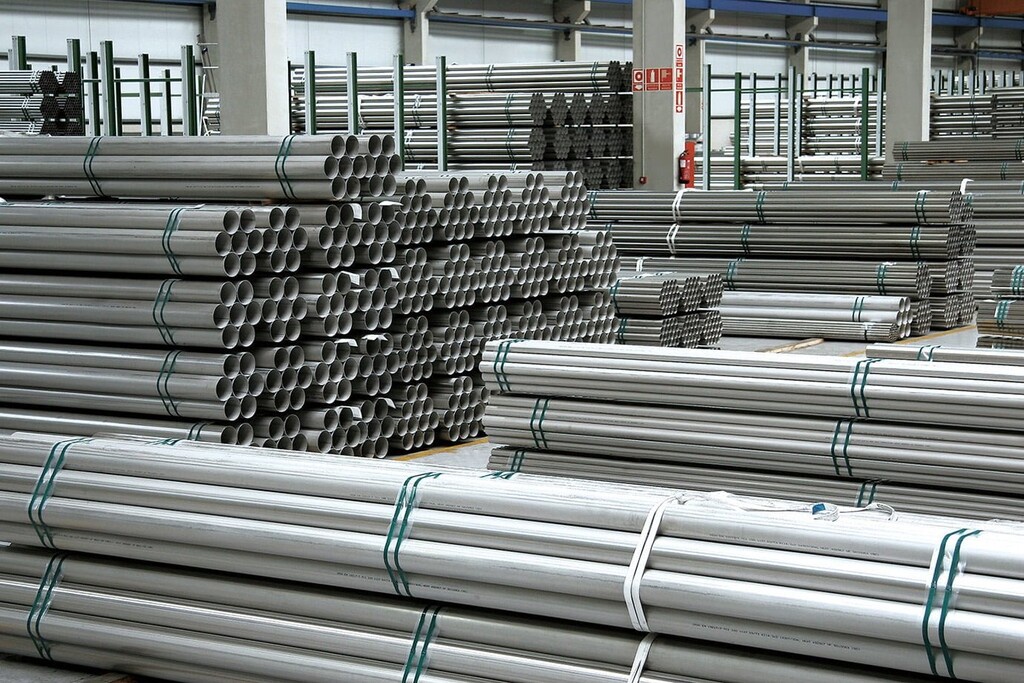Stainless steel, a material celebrated for its corrosion resistance, strength, and aesthetic appeal, has become a cornerstone in various industries. Among its many applications, stainless steel pipes stand out as versatile conduits vital in transporting fluids and gases. In this blog, we delve into stainless steel pipes, exploring their properties, applications, and the advantages they bring to modern engineering.
Properties of Stainless Steel Pipes:
-
Corrosion Resistance: One of the most notable features of stainless steel pipes is their exceptional corrosion resistance. This makes them ideal for applications where exposure to harsh chemicals, acids, and corrosive environments is prevalent.
-
High Strength and Durability: Stainless steel pipes boast impressive strength and durability, allowing them to withstand high-pressure conditions and harsh operating environments. This characteristic ensures longevity and reduces the need for frequent replacements.
-
Temperature Resistance: Stainless steel pipes retain their structural integrity across various temperatures. This attribute makes them suitable for applications involving extremes in hot and cold environments.
-
Hygienic and Easy to Clean: The smooth surface of stainless steel pipes makes them easy to clean and maintain. This quality is especially crucial in industries such as food and pharmaceuticals, where hygiene is paramount.
Applications of Stainless Steel Pipes:
-
Oil and Gas Industry: Stainless steel pipes find extensive use in the oil and gas sector due to their resistance to corrosion and ability to handle high-pressure conditions. They are employed in transporting oil, gas, and other petrochemical products.
-
Construction and Architecture: In construction, stainless steel pipes are favoured for their aesthetic appeal and structural strength. They are commonly used in building facades, handrails, and structural components where both form and function are essential.
-
Water and Wastewater Treatment: The corrosion-resistant nature of stainless steel makes it an ideal choice for pipes used in water treatment plants. Whether transporting potable water or handling wastewater, stainless steel pipes ensure a reliable and durable solution.
-
Chemical Processing: Stainless steel pipes play a critical role in chemical processing plants where resistance to corrosive substances is paramount. Their ability to maintain structural integrity in aggressive chemical environments makes them indispensable.
Advantages of Stainless Steel Pipes:
-
Longevity and Low Maintenance: Stainless steel pipes have a longer lifespan compared to pipes made from other materials, reducing the need for frequent replacements. Their low maintenance requirements make them a cost-effective choice in the long run.
-
Aesthetic Appeal: The sleek and modern appearance of ss pipes adds an aesthetic dimension to various applications, making them suitable for functional and decorative purposes.
-
Recyclability: Stainless steel is highly recyclable, making it an environmentally friendly choice. The ability to recycle stainless steel contributes to sustainable practices in various industries.
Conclusion:
Stainless steel pipes have become indispensable in various industries thanks to their corrosion resistance, strength, and versatility. Whether facilitating the flow of fluids in the oil and gas sector, enhancing the aesthetics of architectural structures, or ensuring water purity in treatment plants, stainless steel pipes exemplify the marriage of form and function in modern engineering. Their enduring popularity underscores the material's ability to meet the evolving needs of industries that demand reliability and longevity.


No comments yet